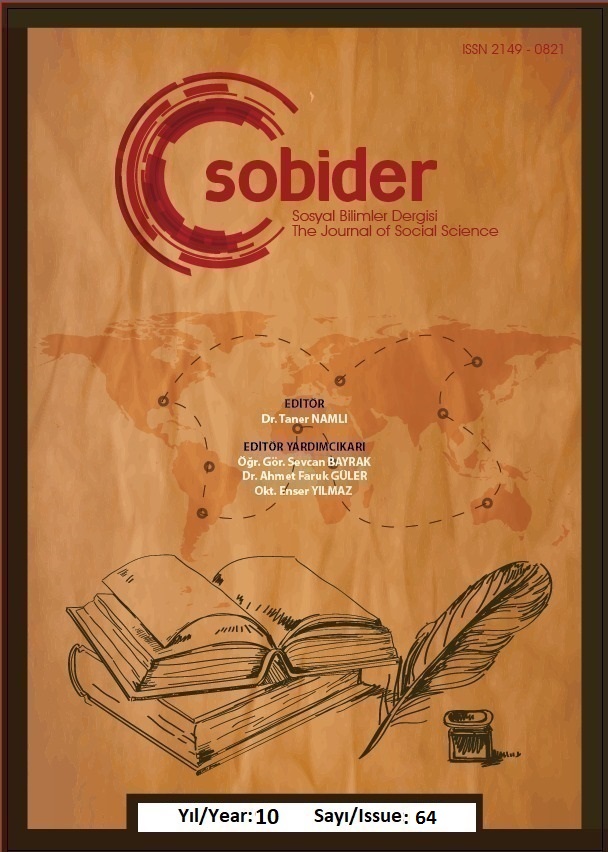Author :
Abstract
Henüz Demokrat Parti (DP) muhalefetteyken etkisi yeni keşfedilen ve birçok siyasi parti tarafından kullanılan dini söylem ve vaatler, iktidara ulaşma yolunda etkili araçlardan biri haline gelmiştir. İktidara ulaşmadan önce keskin dini vaatleri olmayan, fakat din meselelerinde yapacaklarını halka hissettiren Demokrat Parti, halkın desteğini alarak 1950 seçimlerinden zaferle çıkmıştır. İktidarının ilk icraatının Arapça Ezan yasağını kaldırmak olması, Demokrat Parti’nin dini aktif olarak siyasette kullanacağını gösteren ilk adım olmuştur. Bu adımı İmam Hatip Okullarının açılması, ilkokullarda din derslerinin okutulması, Radyoda Kur’an okutulması gibi halk tarafından sevinçle karşılanan adımlar takip etmiştir. Demokrat Parti’nin izlediği din-siyaset ilişkileri bağlamındaki politikaları, irticai eylemlerde etkili görülmüş olup, parti bu söylemleri kesin olarak reddetse dahi engellemek için sıkı önlemler almıştır. Bu makalede Demokrat Parti’nin din-siyaset ilişkileri bağlamındaki politikaları, resmi kaynaklar ve dönemin çeşitli basın organları aracılığıyla değerlendirilmiştir.
Keywords
Abstract
While the Democratic Party (DP) was still in opposition, religious rhetoric and promises, whose influence was newly discovered and used by many political parties, have become one of the effective tools on the way to power. The Democratic Party, which did not have sharp religious promises before reaching power, but made the people feel that they would do it on religious issues, emerged victorious from the 1950 elections with the support of the people. The fact that the first act of its government was to lift the ban on the Arabic Adhan was the first step that showed that the Democratic Party would actively use religion in politics. This step was followed by steps such as the opening of Imam Hatip Schools, the teaching of religious lessons in primary schools, and the teaching of the Qur'an on the radio, which were welcomed with joy by the public. The Democratic Party's policies in the context of religious-political relations have been seen as effective in reactionary actions, and the party has taken strict measures to prevent these discourses, even if it firmly rejects them. In this article, the policies of the Democratic Party in the context of religious-political relations have been evaluated through official sources and various press organs of the period.





